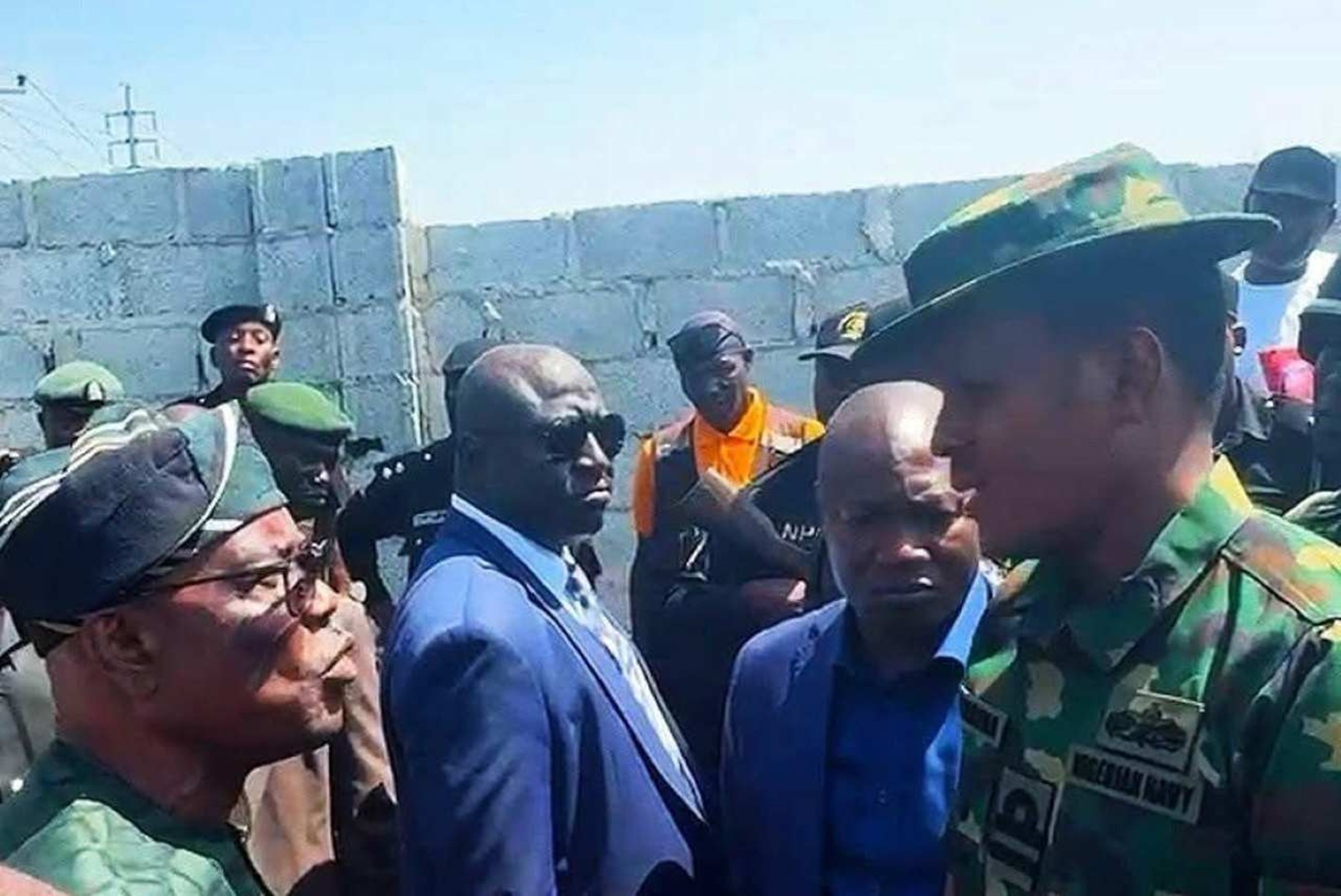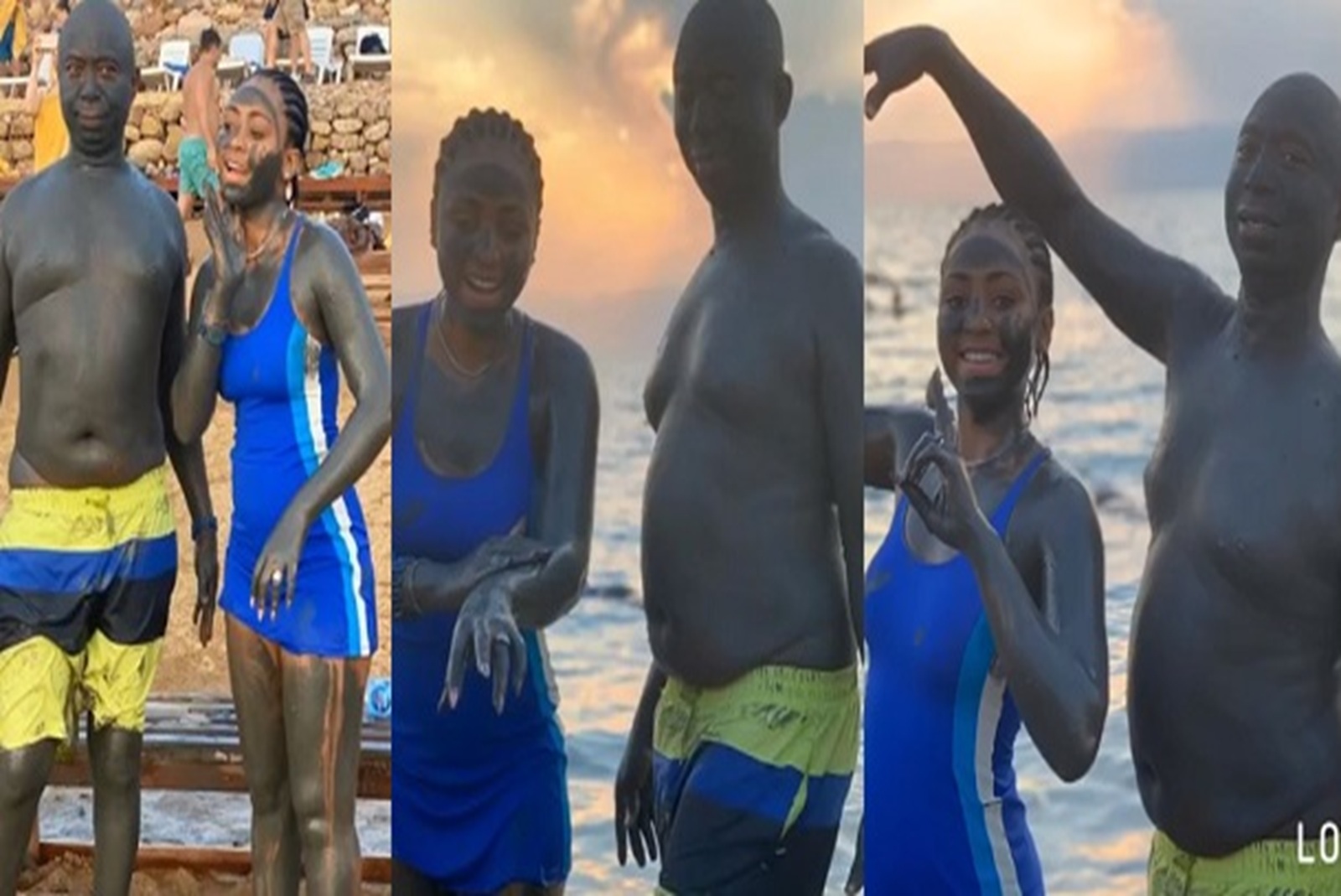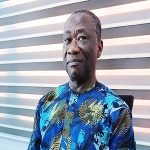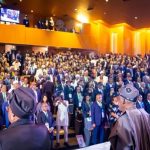The Judiciary—the third arm of Government—seemed to have been “set up” by a political hymn recited at the recent 2025 All Nigerian Judges Conference held at the National Judicial Institute, Abuja, on 17 November 2025.
The hymn in question is a hymn composed and dedicated to President Bola Ahmed Tinubu. The hymn (also referred to as Tinubu Anthem) which was sung as part of his campaign songs for the 2023 presidential election, remains relevant even as he presses forward his legitimate ambition to go for a second term, come 2027.
The lyrics of the beautiful anthem titled, “On Your Mandate”, go this way:
On your mandate we shall stand
On your mandate we shall stand
On your mandate (Bola)
On your mandate (Bola)
On your mandate we shall stand
National Assembly sings
In December 2024, President Tinubu presented the 2025 budget before a joint session of the National Assembly—the second arm of Government. On that day, many of the lawmakers led by the Senate President, Godswill Akpabio, ecstatically raised their arms as they chanted the Tinubu Anthem to usher in the President. This presupposes a declaration of allegiance to the Nigerian President by the lawmakers in their hallowed chambers.
The National Assembly came under heavy criticism for doing this. The reason is because the floor of the Nigerian parliament ought to be a place for serious legislative business in the interest of the nation. It should never be a place for activities having the frisky colouration of a political rally for personal interests.
The turn of the Judiciary
In a similar fashion, it seemed that the Nigerian Judiciary associated with the Tinubu Anthem during the recently held all-judges conference. At the conference, while the anthem was being recited, all the judges and others present rose to their feet in honour of the President.
This development raised dusts of displeasure as many criticized the Judiciary for appearing to declare their support for President Tinubu through the anthem, just like their counterpart at the National Assembly did.
Why the Dust?
In our system of government in Nigeria, we operate three arms of Government—the Executive (led by the President), the National Assembly (led by the Senate President and the Speaker of the House of Representatives), and the Judiciary led by the Chief Justice of Nigeria).
While these three arms or organs of Government are to work together to ensure we have a well-governed nation, the Nigerian Constitution made room for separation of powers in order to guarantee checks and balances among the organs.
In this sense, it would be ridiculously unwise for the National Assembly and the Judiciary to be seen appearing to declare support for the political ambitions of the President of the country. This would make the principle of checks and balances look cosmetic. The natural consequence of this is the possibility of having unchecked impunity in governance. Where exercise of power is unchecked, abuse and reckless disregard for the rule of law becomes imminent.
While members of the National Assembly are politicians elected into offices, judicial officers who make up the Judiciary are appointed by the President or Governor (of a State) through an established process involving both the Federal and State Judicial Service Commissions and the National Judicial Council.
Also, while the lawmakers may be members of the same political party as the President, judicial officers do not have the liberty to become pronounced and visible members of any political party.
Therefore, when we talk about non-partisanship, the Judiciary is at the heart of it. This accounts for the reason it is distasteful to see what seems like a political endorsement by the Judiciary of any serving political officer.
But what really transpired?
Irked by the criticisms, the National Judicial Institute (NJI) has given a clear account of what actually transpired at the all-judges conference in Abuja as it relates to the Tinubu Anthem. In a Press Release of 18 November 2025, the NJI categorically stated that no Judge in attendance sang or chanted any political song including the Tinubu Anthem at the conference. The NJI further explained:
The brief rendition of the tune “On Your Mandate”, was not initiated, requested, or endorsed by the Judiciary. It was played solely by the Guards Brigade Band as part of their ceremonial protocol to usher the President to the podium for his address. The Judiciary had no control over the musical selections of the Brigade, which operates under military ceremonial procedures. Out of due deference to the Office of the President of the Federal Republic of Nigeria, Judges rose to their feet as the President walked to the podium.
The gaps and the problem
Therefore, the NJI claimed that unlike the lawmakers who sang the Tinubu Anthem to usher in the President, the Judges never sang it but only rose to their feet as the President walked up the podium. In other words, it was only coincidental that the anthem was also being played at that very hour.
The NJI expressed helplessness as it confirmed it had no control over the musical selections of the Guards Brigade Band. This tends to suggest that if the Judiciary had some control, it would probably not allow such an anthem to be played. Unlike the FCT Minister, the Judiciary will not sanction any open confrontation with the military.
From the explanations published by the NJI, one could deduce that the NJI appears not to fully realize the problem with the anthem or tune which was sung at the conference to usher in the President.
The problem was not whether any Judge sang the anthem. The fundamental flaw was that Judges rose to usher in the President while the anthem was being played by the Guards Brigade Band.
While the conference was a statutory and professional gathering, there is nothing in our Constitution or laws that provides that such an anthem must be sung as part of the all-judges conference. The President could have conveniently walked to the podium on a totally different song (such as any of the stanzas of the National Anthem).
The anthem is a personal anthem which professes support for Tinubu only. The anthem was not meant for the Office of the President of the Federal Republic of Nigeria. President Tinubu’s attendance at the judges conference was in his capacity as the President and not in his personal capacity as Asiwaju Bola Ahmed Tinubu. Therefore, a personal anthem such as the tune “On Your Mandate” ought not to be played at a judges conference or even at the National Assembly.
The Judiciary inadvertently allowed itself to be unintentionally “set up” and caught in a web of political propaganda and criticism. Now, it commendably offers explanations to clear the air unlike members of the National Assembly who did not appear to have any problems with what they did.
I imagine that notwithstanding the full defensive posture of the NJI, lessons must have been learnt and that such development should not be allowed to repeat itself again for the preservation of the sacredness of the Judiciary.
Recommendation
The Judiciary should take steps to always close the gaps. The Judiciary should not be seen, whether directly or indirectly, intended or unintended, actively or passively, standing or appearing to stand on the mandate of any political office holder. Nobody should blame anyone complaining that Judges were seen standing when “On Your Mandate We Shall Stand” was being played.
To avoid issues like this and needless explanations, I therefore recommend that the Chief Justice of Nigeria should cause a memorandum to be addressed to the relevant authority in charge of the Guards Brigade Band to exclude the Tinubu Anthem from their musical selections whenever the President intends to attend judicial functions. The National Assembly should do the same. The “On Your Mandate” anthem should be reserved for political rallies only. The Judiciary and the National Assembly must stand and be seen to stand only constitutional mandate.
I believe that President Tinubu, as the Commander-in-chief of the Armed Forces of Nigeria, will not deliberately allow the Judiciary (and the National Assembly) to come under undue criticism for his sake.













